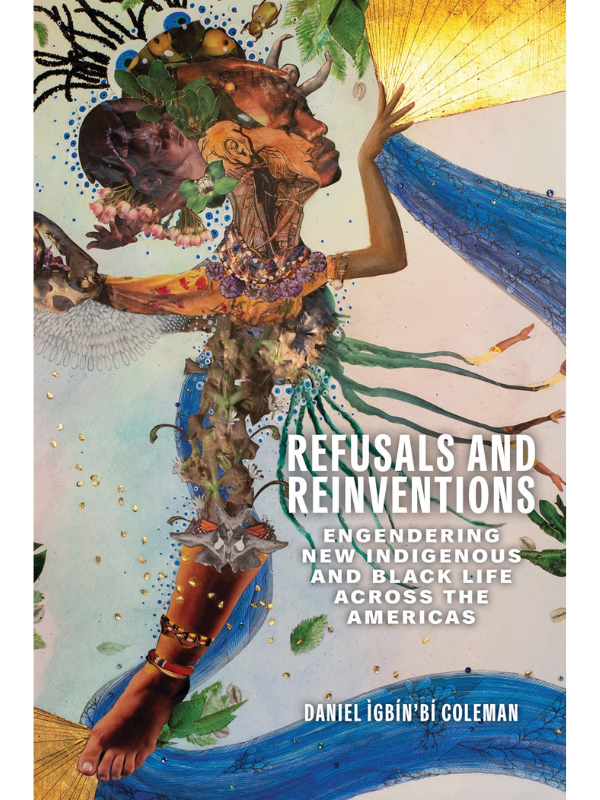Refusals and Reinventions
Refusals and Reinventions
- Engendering New Indigenous and Black Life across the Americas
- by Daniel Ìgbín’bí Coleman
- Representation:
- Genre:
Couldn't load pickup availability
A Ms. Magazine Most Anticipated Feminist Book of 2024
“Refusals and Reinventions supplies readers with sophisticated new language, ways of knowing, and ways of being. Coleman’s hemispheric and pluriversal approach disrupts expectations about geography, temporality, and resistance, offering invaluable insights for anyone thinking about performance, creativity, activism, land, belonging, and power.” —Karma Chávez, author of The Borders of AIDS: Race, Quarantine, and Resistance
“Coleman weaves a dance of decolonial(izing) pedagogies and embodied praxes that transverse multiple boundaries and seed pluriversal otherwises of and for life. This is a profoundly engaging book, a must-read for those who seek relational worlds, movements, and possibilities of being/becoming.” —Catherine E. Walsh, author of Rising Up, Living On: Re-Existences, Sowings, and Decolonial Cracks
In Refusals and Reinventions, artist-scholar-organizer Daniel Coleman considers his critical trajectories and participation in intersectional justice struggles in the US and Mexico, situating them within larger abolitionist and decolonial movements for Black civil rights and Native/Indigenous sovereignty. He identifies how Black and Indigenous people create, exist in, and reclaim many worlds—the pluriverse—through their artistic refusals and reinventions. Coleman thus contributes to a growing body of pluriversal thought, inspired by the Zapatista motto “a world in which many worlds fit.” Charting previously unrecognized connections among the creative struggles of Indigenous people in southern Mexico and Black people in the southern United States, Coleman draws on performance praxis, decolonial pedagogies, and Afro-diasporic and Native/Indigenous cosmologies to frame four case studies of people refusing racialized, gendered violences as world-making tools. In looking at creative responses among activists in Chiapas and North Carolina, Coleman uses transfeminist, Black feminist, and decolonial frameworks to ask: How do creative insurgent practices give us access to our humanity? And what do praxis and engaged witnessing have to teach us about what worlds from the pluriverse hold?
DETAILS
Product Details
Product Details
Share



